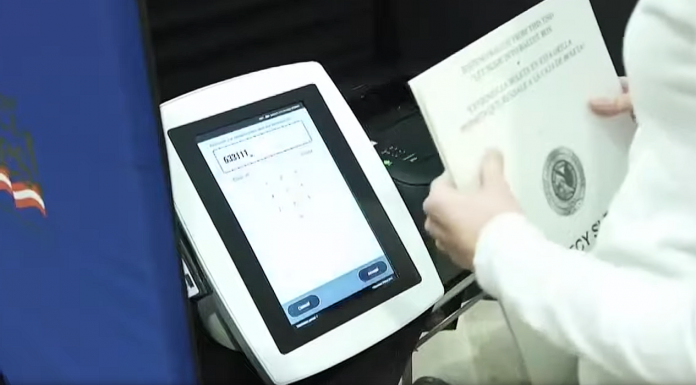A little-noticed policy change in February would seem to offer some confirmation to the criticisms laid out by supporters of former President Donald Trump that network-connected voting machines may have been hacked during the 2020 election.
The Election Assistance Commission stealthily revised its Voluntary Voter System Guidelines to ban any sort of internet connections, including wireless ones, reported Just the News.
“There are significant security concerns introduced when networked devices are then connected to the voting system,” said the revised guidelines.
“This connectivity provides an access path to the voting system through the Internet and thus an attack can be orchestrated from anywhere in the world (e.g., nation state attacks),” the document continued. “The external network connection leaves the voting system vulnerable to attacks, regardless of whether the connection is only for a limited period or if it is continuously connected.”
Previous guidelines, issued in 2015, had permitted certain types of connectivity, provided any data transmitted was first encrypted.
But even those network connections left the systems exposed for possible attack, according to an EAC press release.
If the guidelines were to be strictly enforced, it likely would impact the setup used by major distributors like Dominion Voting System. Eyewitnesses testified to seeing the company’s voting machines in key swing states linked to what appeared to be an internet-connected mainframe server in the backroom.
The company itself released demo videos that showed its technicians remotely adjudicating damaged or disputed ballots to subjectively determine the will of the voters.
And some forensic experts testified that the flow of internet traffic to and from Dominion’s servers on Election Day showed the voting machines linking to several European cities.
The company has largely denied allegations of irregularities, refusing to voluntarily hand over it server logs and other materials to independent auditors, while threatening to sue high-profile media companies and public figures for raising the allegations.
The EAC held a public meeting in February to address the revisions, although the change, in the early weeks of the Biden administration, appears to have made nary a splash.

